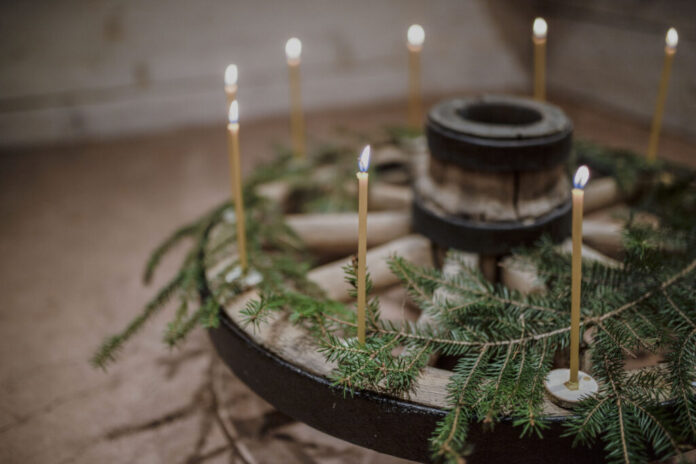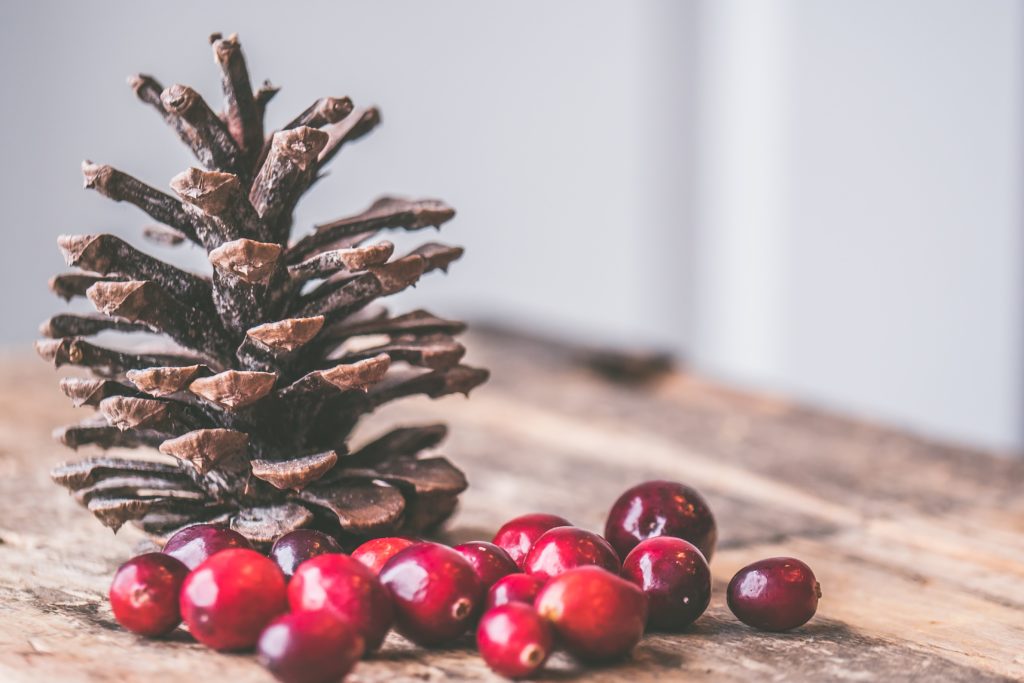
As Advent begins, we all look forward to the event that is so meaningful to Lithuanians throughout the world: Kalėdos (Christmas). Advent is a time of preparation for this, both spiritual and material. The Advent wreath with its new candle every week and Advent calendars signal a countdown to the special day that marks the birth of Christ.
In Lithuania, among the country folk, Advent was a serious time of spiritual cleansing and the end of farm work. It was a peaceful, even mystic time, because of ancient beliefs that persisted from pre-Christian times. It was thought that during this period of darkness, spirits would wander about hoping to wreak havoc with farmers, their winter crops and their animals. Many things were forbidden during Advent.
During Advent, anyone chopping trees in the forest would see a tall, grey-haired woman, the spirit of the woods. Raising an axe, one would hear the keening of the forest goddess, hiding in the underbrush. And bad luck, especially hauntings, would surely come if the logs chopped during Advent were used to build a shack or fire up a wood stove. Likewise, coffins made from such logs would be found scattered throughout the cemetery. In addition, cutting down trees at this time of year would guarantee a poor growing season the following summer.
Noisy work was avoided during Advent, so as not to disturb the normal cycle of nature and the return of the sun. Pillows remained unstuffed, because otherwise crows would attack goslings and other fowl. Sheep were left unsheared so the wool from the next clipping might be softer and the clover may grow thick. The sheep shearing was also delayed because Advent is a time of peace, and because according to the ancient religion, people‘s souls resided in animals after death and so their hosts were not to be harmed in any way. Being outside after midnight was not advisable, due to the increased presence of evil spirits. Not all spirits were bad – it was said that at the beginning of Advent an invisible bridge joined heaven and earth, so that ancestors might visit.

With seasonal farm chores finished for the year, there was more time to observe natural phenomena, by which farmers presaged the success of next year’s crops. If snow lay thick, the first crops would be plentiful. If the Advent period was sunny, vegetables would grow well, and cabbages – especially well if December 8 was sunny. A cold Advent meant a hot summer to come with loud thunder. Fish would be plentiful if Advent nights were starry.
During Advent there were no festivities or dancing. (Except for the Dzūkai of Southeastern Lithuania, who would form circles and sing advent folk songs as they walked around them.) Yet older Lithuanians remember Advent as a beautiful time of amity, and even in harder times, children always found happy things to do. Although fighting and noise were forbidden, there were many games to play. Books were read aloud after evening prayers. Papercut decorations were very popular to make and hang over windows and throughout the home.
Next week – popular Christmas recipes.
























